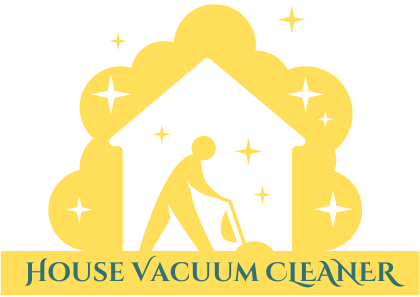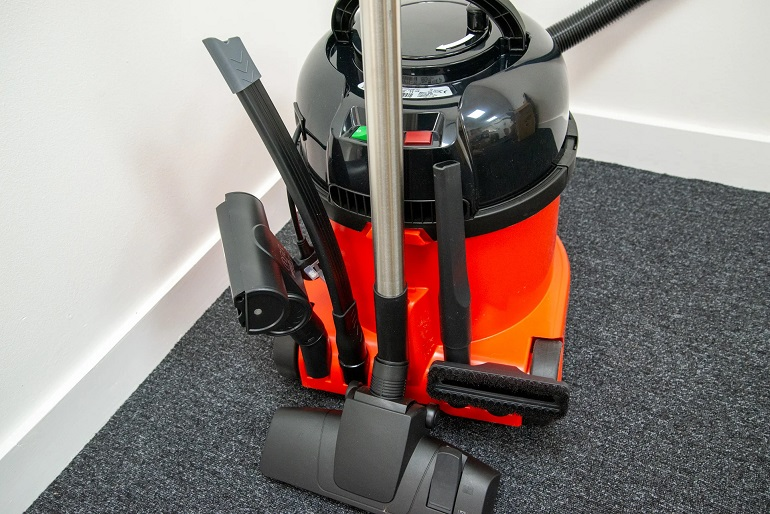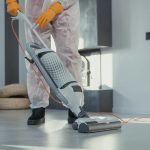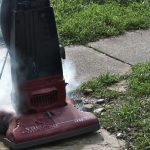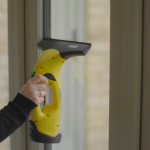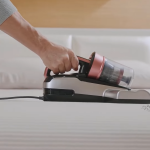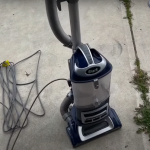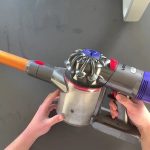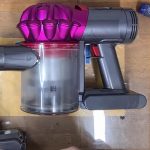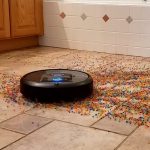Vacuum cleaners are essential household appliances that help keep our homes clean and free of dust and debris. But how long do vacuums last? This article will explore the factors that affect the lifespan of a vacuum cleaner, as well as provide some tips for extending the life of your vacuum. By understanding the various factors that can impact a vacuum’s longevity, you can make informed decisions about when to replace your vacuum and how to properly maintain it to ensure that it lasts as long as possible.
Factors That Influence and effect how Long a Vacuum Lasts
When it comes to vacuuming, one of the key concerns for many people is how long their vacuum will last. There are a number of factors that can influence the lifespan of a vacuum, and understanding these can help you make a more informed decision when buying a new vacuum.
1. Types of Vacuums and Their Lifespan
First and foremost, the type of vacuum you choose can have a big impact on its longevity.
There are several different types of vacuums, each with its own set of features and benefits. Some of the most common types of vacuums include upright vacuums, canister vacuums, stick vacuums, robotic vacuums, and handheld vacuums.
a. Upright vacuum cleaners

Upright vacuums are the most popular type of vacuum, as they are powerful and effective at cleaning carpets. These vacuums are easy to maneuver and typically come with a variety of attachments for cleaning different surfaces. Upright vacuum cleaners typically have an expected lifespan of around 5-8 years, depending on the quality and brand.
b. Canister vacuum cleaners

Canister vacuum cleaners are similar to upright vacuum cleaners, but the main cleaning unit is in a separate canister that is connected to the vacuum head by a hose. These vacuums are more versatile than upright vacuums and are better at cleaning stairs and other hard-to-reach areas. The lifespan of a canister vacuum is generally around 6-8 years.
c. Stick vacuum cleaners

Stick vacuums are lightweight and compact, making them great for quick clean-ups. These vacuums are not as powerful as upright or canister vacuums, but they are easy to use and store. Stick vacuum cleaners typically have an average lifespan of 3-5 years.
d. Robotic vacuum cleaners

Robotic vacuums are a relatively new type of vacuum that uses technology to automatically clean your floors. Robot Vacuum Cleaners can be programmed with better cleaning efficiency to clean your home on a regular schedule and can even be controlled with a smartphone app. Robot vacuums typically have a lifespan of 2-3 years.
e. Handheld vacuum cleaners

Handheld vacuum cleaners are small, portable vacuums that are great for cleaning upholstery, car interiors, and other tight spaces. These vacuums are not as powerful as other types of vacuums, but they are convenient and easy to use. Handheld vacuum cleaners typically have a shorter lifespan of 1-3 years.
2. Quality
The quality of the materials used in the construction of the vacuum can also affect its longevity. High-quality materials, such as sturdy plastic and metal components, are more likely to withstand regular use and will make your vacuum cleaners last longer than cheaper materials.
3. Frequency and intensity
Another factor that can influence the vacuum lifespan is the frequency and intensity of use. Vacuums that are used frequently and for long periods of time are more likely to wear out faster than those that are used only occasionally.
Similarly, vacuums that are used on a variety of surfaces and in a variety of conditions, such as on carpet fibers and hardwood floors, may not last as long as those that are used only on one type of surface.
4. Maintenance and Care
The maintenance and care of the vacuum can also play a role in its lifespan. Regularly cleaning and replacing filters, belts, and other components can help extend the life of a vacuum. Neglecting these tasks, on the other hand, can cause the vacuum to break down prematurely.
5. Brand and Model

Finally, the brand and model of the vacuum can also affect its lifespan. Some vacuum brands and models are known for their durability and longevity, while others may not be as reliable.
There are many different brands and models of vacuum cleaners that are known for their durability and long-lasting performance. Some of the top brands for vacuum cleaners include Dyson vacuum cleaners, Shark vacuum cleaners, Miele vacuum cleaners, Bissell vacuum cleaners, and iRobot vacuum cleaners. Some popular models from these brands that are known for their durability and long-lasting performance include the Dyson Cyclone V10, the Shark Navigator Lift-Away, Miele Classic C1, the Bissell PowerEdge Pet Hardwood Floor Corded Vacuum, and the iRobot Roomba 960.
In conclusion, the type, materials, frequency, intensity of use, maintenance, and brand and model of a vacuum can all influence its lifespan. Choosing a high quality vacuum cleaner, the most durable vacuum and properly caring for it can help ensure that it lasts for many years.
Tips For A Longer Vacuum Cleaner Lifespan
Vacuum cleaners are an essential household appliance that helps us keep our homes clean and tidy. However, like all appliances, vacuum cleaners can break down and need to be replaced over time.
Here are a few tips to help extend the lifespan of your vacuum cleaner and save you money in the long run.
- Empty the dustbin regularly: One of the main causes of vacuum cleaner breakdown is a clogged dustbin. This can happen when the dustbin is not emptied regularly, causing the vacuum to work harder and eventually leading to a breakdown. To prevent this, be sure to empty the dustbin or dust canister after each use and clean it out thoroughly.
- Clean the filters regularly: Another common cause of vacuum cleaner breakdown is clogged filters. Over time, dust, dirt, and debris can accumulate on the filters, reducing their effectiveness and making the vacuum work harder. To prevent this, be sure to regularly clean the filters according to the manufacturer’s instructions. One way to extend the life of your vacuum cleaner is to use a reusable filters that can be easily cleaned and reused, rather than disposable ones that need to be replaced with new filter frequently.
- Use the correct attachments: Vacuum cleaners come with a variety of attachments to help you clean different surfaces and areas of your house. Using the correct attachment for the job can help prevent damage to your vacuum and extend its lifespan. For example, using a motorized brush attachment on delicate surfaces such as curtains can cause damage, so be sure to use the correct attachment for the job.
- Avoid using the vacuum on wet surfaces: Vacuum cleaners are not designed to be used on wet surfaces, and doing so can cause damage to the motor and other components. To prevent this, be sure to always use a wet/dry vacuum for cleaning up liquids, or wait for surfaces to dry before using your regular vacuum.
- Store the vacuum properly: Proper storage is important for extending the lifespan of your vacuum cleaner. Be sure to store your vacuum in a dry, well-ventilated area to prevent moisture and mold from damaging the internal components.
By following these simple tips, you can help extend the lifespan of your vacuum cleaner and save yourself the cost and hassle of replacing it prematurely. Regular maintenance and proper usage are key to keeping your vacuum running smoothly and effectively for years to come.
FAQs
Q: How long do vacuums typically last?
A: The lifespan of a vacuum cleaner can vary depending on a number of factors, including the type of vacuum, the quality of the machine, and how often it is used. On average, a vacuum cleaner can last for about eight years to ten years with proper maintenance and care. However, some high-quality vacuums may last even longer, while cheaper, lower-quality models may only last for a few years.
Q: Do vacuums lose suction over time?
Yes, it is common for vacuums to lose suction over time. This can happen for a number of reasons, including clogged filters, a full dustbin, or a worn-out motor. Additionally, the suction power of a vacuum can decrease as the machine ages and parts begin to wear out, leading to the need for suction drops to maintain optimal performance.
To help maintain the suction power of your vacuum, it is important to follow the manufacturer’s instructions for regular maintenance and care, such as cleaning the filters and emptying the dustbin. This can help ensure that your vacuum continues to work effectively and efficiently. If you notice that your vacuum is losing suction, it may be time to have it serviced or repaired.
Q: Which Brand Vacuum Cleaner Last the Longest?
It’s difficult to say which brand of vacuum cleaner lasts the longest because different vacuum cleaners are designed for different purposes and are made with different materials, so their longevity can vary greatly.
In general, vacuum cleaners that are made with high-quality materials and have a good reputation for durability are more likely to last a long time. Some bigger branded vacuums companies that are known for making durable vacuum cleaners include Dyson vacuums, Miele vacuums, and Shark vacuums.
However, the best way to determine which vacuum cleaner is the most durable is to read reviews from other consumers and look for models that have a long warranty period.
Conclusion
In conclusion, the lifespan of a vacuum cleaner can vary greatly depending on a number of factors, including the type and quality of the device, how often it is used, and how well it is maintained. On average, most vacuums last between five and eight years, with some high-end models lasting even longer.
To extend the lifespan of your vacuum, it is important to properly maintain and clean it on a regular basis, and to replace any worn or damaged parts as needed. Additionally, investing in a high-quality vacuum that is designed to last can help ensure that your cleaning device will continue to function effectively for many years to come.
